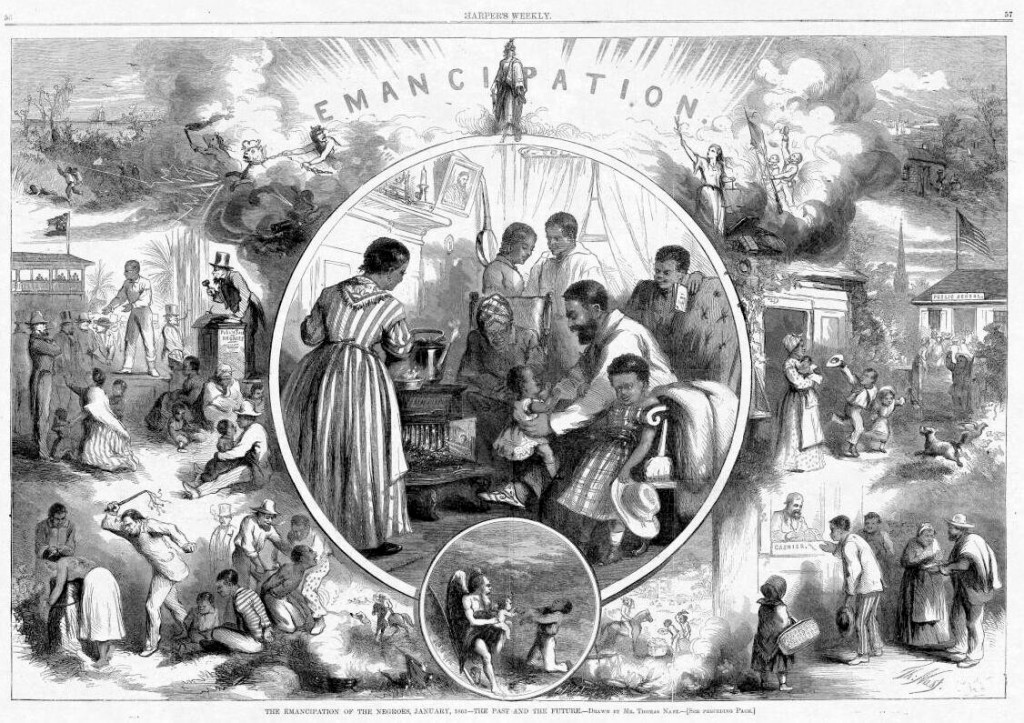
Image via Harper’s Weekly, 1865.
S.C. Encyclopedia | The tradition of marking the end of slavery with Emancipation Day celebrations began in South Carolina on January 1, 1863—the day the Emancipation Proclamation of President Abraham Lincoln declared three million slaves in the Confederate states to be “thenceforward, and forever free.” Since then, African Americans in South Carolina have gathered annually on New Year’s Day to commemorate the “Day of Jubilee” with food, song, dance, and prayer.
Emancipation Day celebrations in America can be traced back to January 1, 1808, when the United States officially ended its participation in the international slave trade. Other significant events in the fight against slavery (West Indian emancipation, passage of the Thirteenth Amendment, first notification of emancipation in east Texas) provide alternate days (August 1, February 1, June 19, respectively) for Emancipation Day celebrations in other regions of the country. In South Carolina, however, New Year’s Day overshadows these counterparts.
From the first Emancipation Day celebration in Port Royal, when thousands of former slaves traveled significant distances to enjoy a day of singing, feasting, and oratory, African Americans in South Carolina have invested the holiday with secular and sacred significance. During the Reconstruction Era, Emancipation Day celebrations were means by which African Americans publicly dramatized their newfound freedom. The occasions varied widely in size, location (from town squares to churches), form (from barbecues to military parades), and tone (from moderate calls for hard work and thrift to fiery sermons and appeals for radical political change).
Despite opposition from some whites, Emancipation Day celebrations drew large crowds across South Carolina during the decades following the Civil War. While the number of occasions and participants dwindled after Reconstruction, Emancipation Day celebrations remained vital rituals for South Carolina’s African American community well into the twentieth century.
– Excerpted from the entry by Ethan J. Kytle. To read more about this or 2,000 other entries about South Carolina, check out The South Carolina Encyclopedia by USC Press. (Information used by permission.)



 We Can Do Better, South Carolina!
We Can Do Better, South Carolina!
























